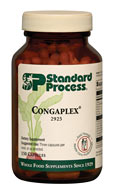Managing Your Illnesses

|
Voltaire |
When you get sick, what do you do? Most people run to the doctor's office or to urgent care. I don't understand why. Yes, there are times that the emergency room is necessary, but most of the time, the body is simply communicating to us that something is wrong!
The usual course goes like this: you get a stuffy nose, maybe a fever. So you run to an urgent care facility. They tell you "you have a cold", and then give you antibiotics. Soon you feel a little better, and eventually the symptoms subside. Rarely does one ever look at the long term ramifications of this action. First of all, colds are viral and antibiotics work on bacteria, not viruses. But in defense of medical doctors, the patient demands something and the doctor figures it may prevent a secondary infection, so they prescribe it. Little does the patient realize that it would have cleared up in a few days with or without the antibiotic. Not only that, but the antibiotic kills the good bacteria along with the bad.
We have no one to blame but ourselves. We caused this mess. We caused it by our overindulgence in antibiotics for every little sniffle, scrape, sore throat, cough and more. Our physicians caused it by giving antibiotics out like candy because we demand something. If the doctor were to say no to the antibiotics and tell us simply to go home, get some sleep, eat chicken soup and get the stress out of our lives, we'd leave calling him a quack. So they acquiesce to our demands. However, that advice would go far in helping you to develop a stronger immune system.
- What is the germ theory
- How microflora affects our health
- Why a weak immune response is a major factor
- Why a fever is good for you
- What things make us sick











